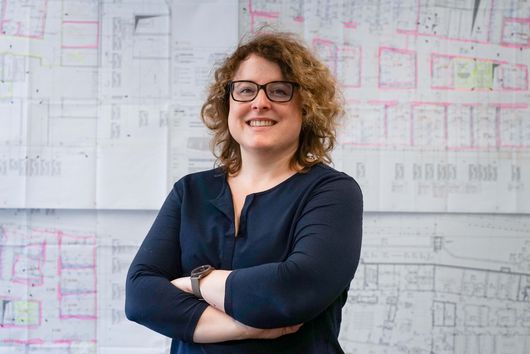
Not just delivering results, but understanding things
Why do young people from all over the world decide to start a career in science in Würzburg?
Yuanjie Wei was born and raised in northeast China. Since July 2020, she has been a PhD student at the Helmholtz Institute for RNA-based Infection Research (HIRI). “I majored in biology but also love mathematics, programming, and computer games,” says Wei. In Mathias Munschauer’s research group, she can cover all these interests. The team combines technologies from the fields of biochemistry, genomics, molecular biology, and bioinformatics and applies them to RNA-centric research questions. “Learning about the research of the Munschauer group from the webpage, I realized this is where I’d like to continue my academic studies.” Due to the pandemic and the long distance, she had the interview via Zoom. “After receiving the official offer from the group, the team members organized a video call to welcome me. Even though I was physically far away, I could feel the kindness of the team and joined it right away mentally,” says Wei.
Sometimes things just happen
Other ways lead to the HIRI as well, such as Tanja Achmedov’s. Twenty years ago, the technical assistant came from Kazakhstan to Germany. In Kazakhstan, she studied biology and worked as a teacher for four years. Ending up in Würzburg was entirely a coincidence, a very happy one. “I fell in love with this city,” says Achmedov. “All the green parks in the city, the nature, and the hilly countryside; you wouldn’t find this in Kazakhstan very often.” She was also lucky when looking for a job: “I had my first and only interview in Germany with Jörg Vogel, and he offered me a position.”
Dynamic growth
In 2018, Achmedov transferred from the University of Würzburg to the HIRI. Within Chase Beisel’s team, she started with three fellow team members. Today, she coordinates the lab for 25 scientists. But even though the organizational challenges have grown rapidly, she wouldn’t delegate some of her tasks in the lab—such as producing reagents for the entire research group, which otherwise would have to be purchased.
Teachers play an important role
Her passion for biology started at school. “I had a teacher who showed trust in me and who encouraged me.” And although she wasn’t very good in all her subjects, her teacher sent Achmedov to a biology competition. “This made me realize that I could tackle everything,” says the technical assistant.
Milan Gerovac also emphasizes the importance of the role teachers play. “I had a very committed chemistry teacher. We were encouraged to work in small groups on projects that already had a microbiological character. At that time, my passion for researching invisible things started.” His teacher also organized school excursions to the German Cancer Research Center in Heidelberg. “We could get a sense of what a scientist’s working environment is really like.”
Child care is hard to find
After graduation, he started working at the University of Würzburg and the HIRI. He likes the short distances and the cultural life in Würzburg. “However, it was difficult to organize child care; this could definitely be improved,” he states. The global competition in science is immense; scientists have to publish their results as quickly as possible. According to Gerovac, it can become rather stressful if scientists are forced to put their research on hold in order to look after their children.
On the move
At the HIRI, he appreciates that the scientific work is on the move. “We already understand many aspects of RNA biology, but now it becomes clearer which dimension it has”. So far, the focus has been on the obvious things. The next step is to understand the global context.
“We need to think in networks; I see a lot of potential there”. By connecting with other fields such as information technology, tools are provided to better understand the complexity of the field. “We conduct modern, future-oriented research. The aim is not to deliver results now but to understand things that might be relevant in 20 or 30 years,” says Gerovac.







